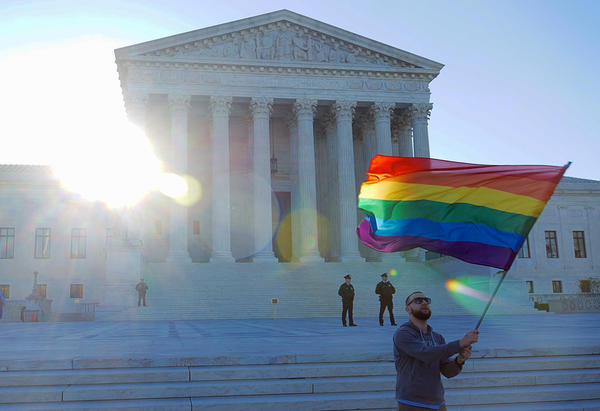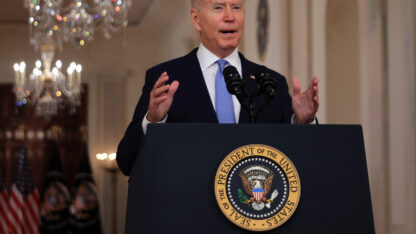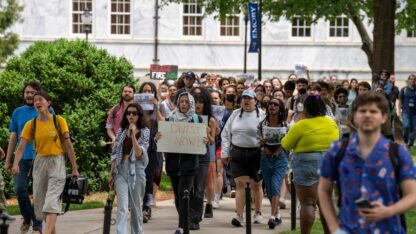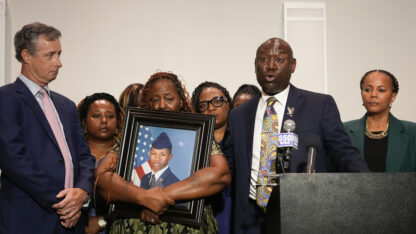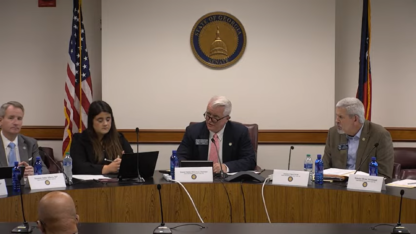GSU Professor: Same-Sex Marriage Bans Harmful To Children
The U.S. Supreme Court heard arguments Tuesday in the battle over same-sex marriage. The case before the High Court focused on two questions. The first is whether banning same-sex marriage is constitutional, and if so, whether the states with same-sex marriage bans in place can refuse to recognize same-sex marriages in other states.
Same-sex marriage is legal in 37 states and the District of Columbia. Depending on the outcome of this case, it could be legal in all 50 states by or before the end of the court’s term in June.
The case, known as Obergefell v. Hodges, stems from marriage bans in four states: Michigan, Ohio, Kentucky, and Tennessee.

While Georgia is not involved in the case, it is one of 12 states with a constitutional amendment banning same-sex marriage and a non-recognition law. Same-sex marriage is banned in Nebraska through only a constitutional amendment.
“So if someone moves to Georgia from California their marriage is not recognized and they cannot even litigate any issue arising out of that marriage in Georgia courts,” Georgia State University associate law professor Tanya Washington said on “A Closer Look.”
Washington is part of a group of legal experts who filed an amicus brief in the case before the U.S. Supreme Court.
An amicus brief is a legal document filed in a case by a person or group that is not directly involved in the case. The court may accept or reject the brief. The added information contained in the brief can be used by a judge, in this case the Supreme Court justices, for additional information when deciding the case.
Washington’s amicus brief, which centered on the children of same-sex couples, was one of the record-breaking 148 filed in the case.
“It’s important for us to consider that the state is often in defense of these bans, justifying the prohibition in protection of children’s interests and my question is which children?” Washington said. “You have children in … same-sex families, whose rights and legal rights, economic interests and legal protections are going to be adversely impacted when these laws are imposed. It also affects their legal parental relationship with the non-biological parent. Every child deserves parents and the court has recognized that in a number of contexts that it is in their best interest to have two legal parents.”
Washington believes the historic case in the battle over same-sex marriage now before the U.S Supreme Court has been a longtime coming.
“They are going to finally address the direct question of the constitutionality of these state marriage bans that prohibit same-sex marriage.”
The court is expected to issue a ruling by the end of June.
Rose Scott and Denis O’Hayer contributed to this story.
9(MDAxODM0MDY4MDEyMTY4NDA3MzI3YjkzMw004))
